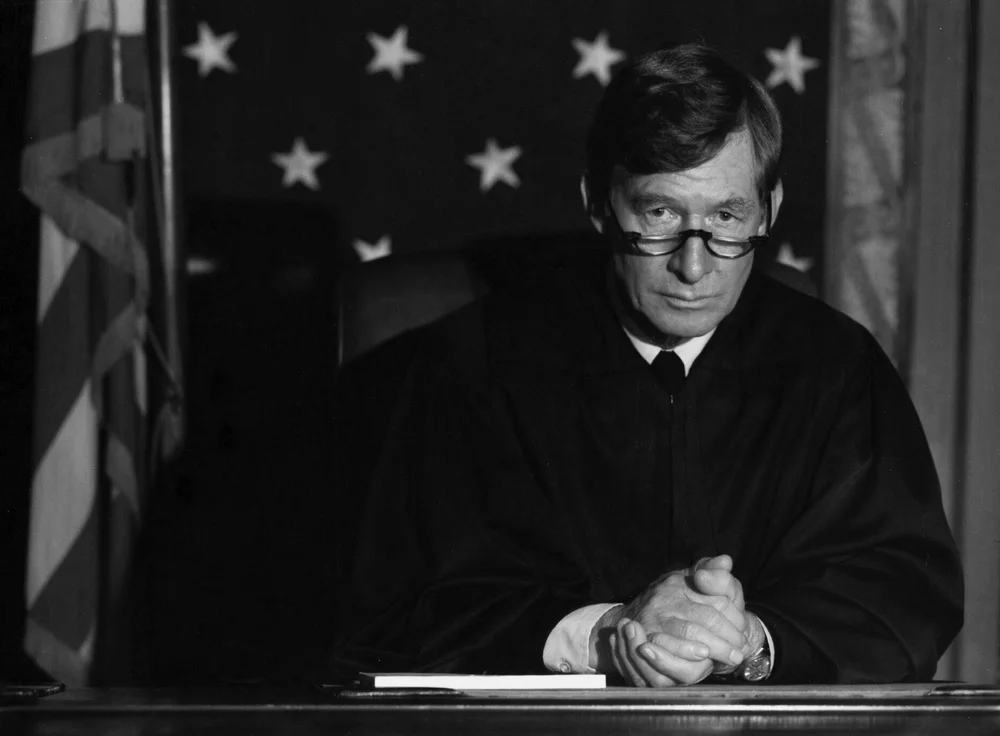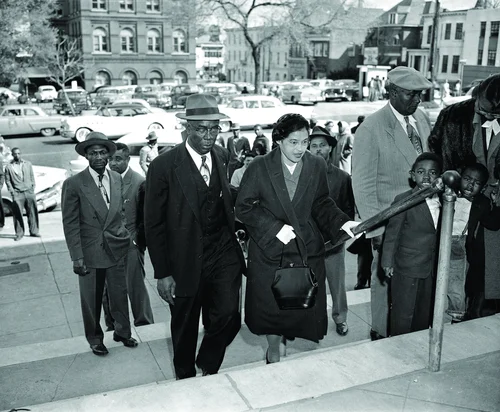“The man that I know in the United States who gives true meaning to the word justice.”
- Dr. Martin Luther King, Jr.

Judge Frank M. Johnson, Jr. was a federal judge who, in his words, merely “did his job.” In doing so he, along with Mrs. Rosa Parks and Dr. Martin Luther King, helped change the world.
In May of 1954, the U. S. Supreme Court decided Brown v. Board of Education, which declared unconstitutional racial segregation in public education. How that decision would affect other state-mandated racial segregation was still unclear when, a year and a half later, 37-year-old Frank Johnson became a federal judge and was quickly presented with cases requiring him to interpret the Constitution in light of the Supreme Court’s guidance.
Case after case, including the case of Rosa Parks, which challenged bus segregation, and the case allowing the historic Selma-to-Montgomery March led by Dr. King, were filed in Judge Johnson’s courtroom. Believing in the words of the United States Constitution as interpreted by the Supreme Court, Judge Johnson stood firm in defense of the Constitution and the civil liberties it guarantees. In spite of death threats and intense societal pressure, he continued to be faithful to the Constitution.
His decisions dismantled state-mandated racial segregation and helped change the South, but his influence was by no means confined to the Southern states. His decisions on voting rights, equal opportunity employment, affirmative action, humane conditions for prison inmates, and the rights of mental patients to adequate care affected the nation and the world. In all his cases, Judge Johnson strove to be faithful to the Constitution.
Judge Johnson served as a district court judge in the U.S. Court for the Middle District of Alabama from 1955 to 1979, and a judge on the U.S. Fifth and later Eleventh Circuit Court of Appeals from 1979 to 1999 (taking senior status in 1991). Among his many honors, he was awarded the Presidential Medal of Freedom in 1995.
Learn more about Judge Johnson’s life and career in the Encyclopedia of Alabama by clicking the button below.

